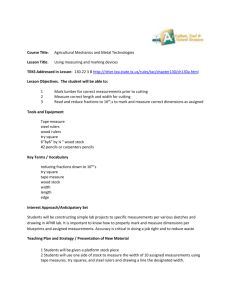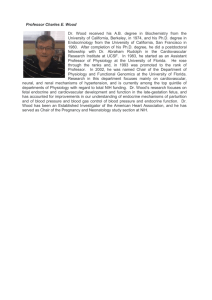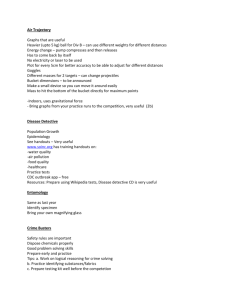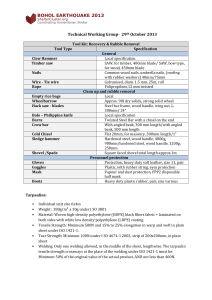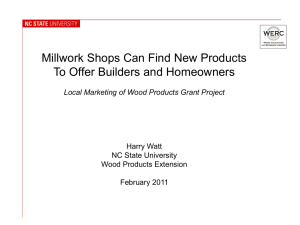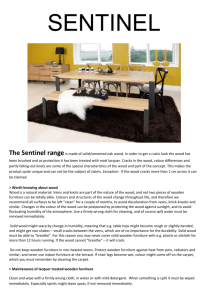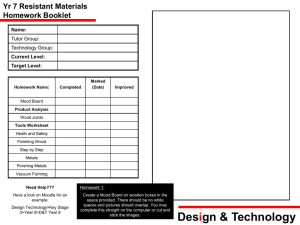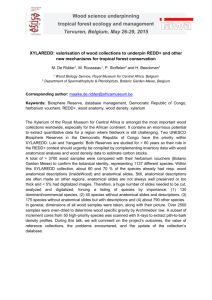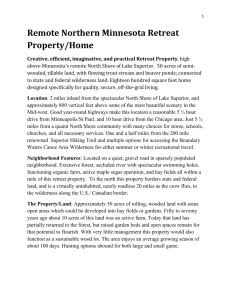Tree Defects & Quality
advertisement
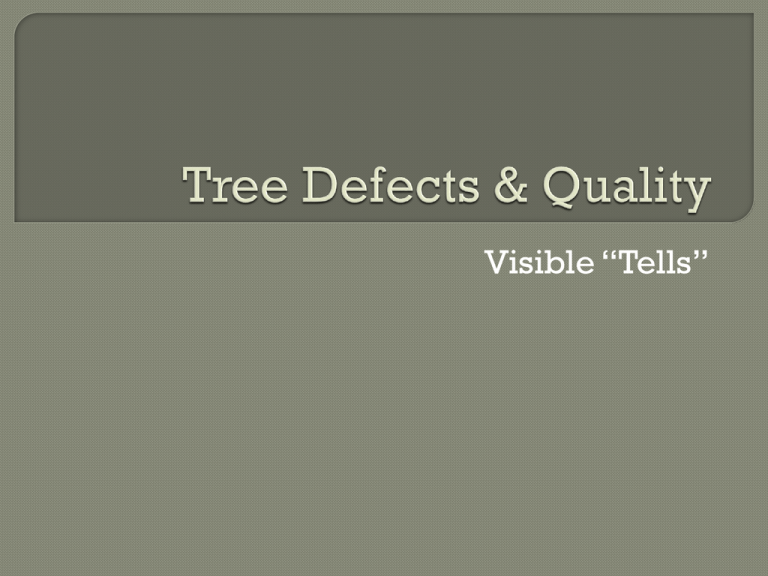
Visible “Tells” Scaling estimates wood volume after defects that result in loss of wood are removed Grading removes defects that could result in lower wood quality – clear cuttings The volume of a product before defect is removed (sound wood plus unsound wood) is called gross volume. The remaining volume after defect has been removed (sound wood only) is called net volume. 1. Estimate gross volume 2. Estimate cull deduction and subtract from Gross volume to get Net volume 3. Estimate grade of net volume wood Veneer Factory Use (can cut into clear pieces, i.e for furniture) Construction Use Local Use (pallets, posts, etc.) Chips Bulge Bumps Burls Butt Scar Butt Swell Cankers Galls Lesions Conks Epicormic Flanges Flutes Branches Forks Gum Lesions Holes Knots Limbs Overgrowths Seams Splits Surface Rise Wounds Timber Cruising Handbook, Ch. 20, pg. 57 Defects in Hardwood Timber Handbook good reference 2.5 inches Bird peck (4+ callused) Residual from branch Concentric circles Overgrowths heavy (YP) Medium Light Light distortion – has normal bark patterning breaking through entirety of concentric rings Medium – normal patterning has invaded but not gone through concentric rings Heavy – concentric rings has totally interupted normal bark pattern heavy Starting with a 1’ stump Examine Allow So the 16’ log above the stump .3’ for trim (4” – 2” on each end) you are looking at the tree from 1-17.3’ The grading face is the third best face or the second worst face Example of an F2 grade butt-log. Stoppers are occurrences in the tree that can not be productively sawn through and limit the length of a potential log section. • Forks that are at least 1/3 diameter of main bole at point of occurrence and 45 degrees or less in angle from the main bole. • Branches, stubs, remnant bumps. – ½ diameter of mainstem. • Any embedded metal excluding aluminum. • Sudden dramatic change in bole diameter Rot Catface or fire scar (missing wood) Sweep Crook Interior damage Within slab area = no deduction i.e. Sapsucker Damage for construction grade logs, etc. Extend the length affected an additional 2 feet above the last visible indicator. Pie cut fractions are used to determine deductions. Fractions used as 1/8, 1/4, 1/3, 1/2, etc. USE STANDARD PIE CUT FRACTIONS SUCH AS 1/8, 1/4, 1/2 FOR CULL DEDUCTIONS WATCH FOR SPIRAL DAMAGE Different types of conks indicate different fungal infections. Some penetrate deeper than others which effects defect deduction. Must familiarize yourself with those in your area.
